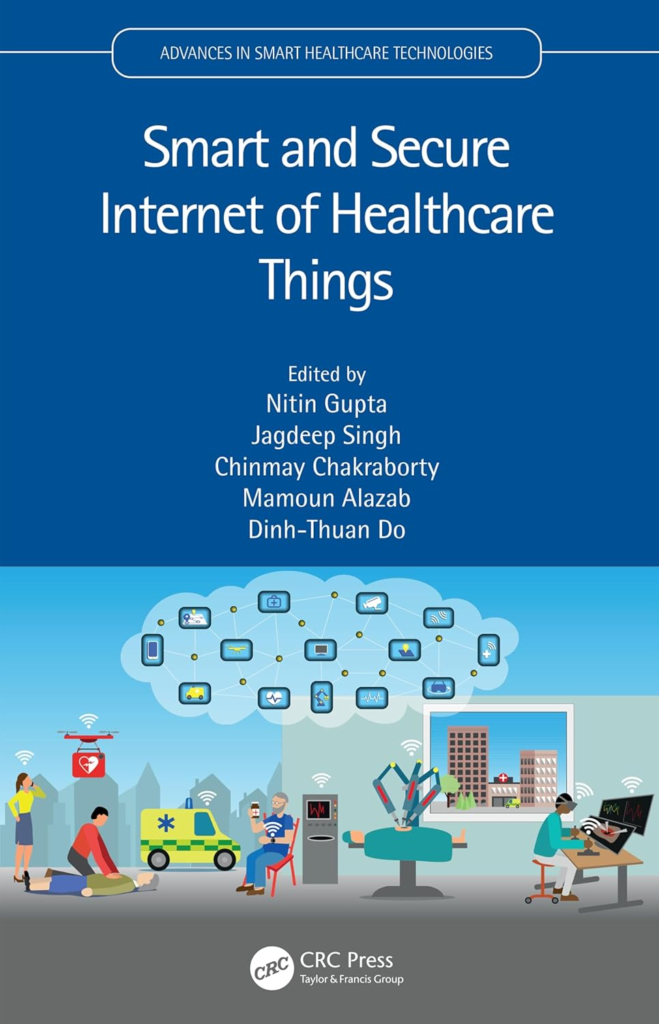Artificial Intelligence in Healthcare
Artificial Intelligence (AI) has emerged as a transformative force in various industries, and healthcare is no exception. At its core, AI refers to the simulation of human intelligence processes by machines, especially computer systems. In the context of healthcare, AI encompasses a range of technologies and methodologies, including machine learning, natural language processing (NLP), and robotics. These technologies are increasingly being integrated into hospital management systems to enhance operational efficiency and patient care.
Machine learning, a subset of AI, enables systems to learn from data, identify patterns, and make decisions with minimal human intervention. In hospitals, machine learning algorithms can analyze vast datasets, such as patient medical histories, to predict patient outcomes, identify potential complications, and recommend personalized treatment plans. This capability not only improves the accuracy of diagnoses but also allows healthcare providers to allocate resources more effectively.
Natural language processing, another key AI technology, focuses on the interaction between computers and human language. In healthcare settings, NLP is used to convert unstructured data from clinical notes, patient records, and research articles into structured information that can be easily analyzed. This capability facilitates improved communication between the various stakeholders in the healthcare system, enabling more informed decision-making and enhanced collaboration among medical professionals.
Robotics, aided by AI, plays a crucial role in streamlining hospital operations. Robotic systems can assist in a variety of tasks, from performing complex surgeries with precision to managing logistics within the hospital environment. These technologies help reduce operational inefficiencies, minimize human error, and improve patient safety, ultimately contributing to better healthcare outcomes.
As AI technologies continue to evolve, their integration with existing hospital systems becomes more seamless, leading to improved patient care, streamlined operations, and enhanced decision-making processes across the healthcare continuum.
(Purchase today by clicking on the image)
Enhancing Operational Efficiency with AI
Artificial Intelligence (AI) has emerged as a transformative force in hospital management, particularly in enhancing operational efficiency. One of the prominent applications of AI in this context is patient scheduling optimization. Traditional scheduling methods often lead to inefficiencies, resulting in long wait times for patients and increased workloads for healthcare staff. AI systems employ algorithms that analyze historical data, patient demographics, and appointment trends to optimize schedules proactively. For instance, AI-driven scheduling tools have been successfully utilized in several hospitals, demonstrating significant reductions in patient wait times by up to 30%, thereby improving patient satisfaction and overall service delivery.
In addition to scheduling, AI also plays a crucial role in resource allocation. Hospitals face the challenge of managing limited resources, including staff, equipment, and facilities. AI systems can predict demand for various services and adjust resource allocation accordingly. For example, utilizing machine learning models, hospitals can forecast patient admission rates based on seasonal trends and local events, allowing them to staff appropriately and ensure that critical resources are available when needed. This dynamic resource management helps reduce operational costs significantly while maintaining high-quality patient care.
Furthermore, predictive analytics for patient flow management is another area where AI showcases its potential to enhance operational efficiency. By analyzing patient data, hospital admissions, and treatment patterns, AI tools can predict patient inflows, enabling better planning for emergency services and inpatient care. A notable example is the integration of AI in a major metropolitan hospital, where predictive models were implemented to streamline emergency department operations, resulting in a 20% decrease in patient waiting times during peak hours. These advancements highlight how adopting AI technologies not only bolsters operational efficiencies but also delivers a higher standard of care in hospitals.
AI-Driven Decision Support Systems in Patient Care
AI-driven decision support systems have emerged as a pivotal component in the modernization of patient care. These systems leverage large datasets and advanced algorithms to assist healthcare professionals in diagnosing diseases, formulating personalized treatment plans, and predicting patient outcomes. By analyzing diverse data sources, such as electronic health records, lab results, and historical patient information, these AI systems provide clinicians with evidence-based recommendations that enhance the accuracy of medical decisions.
One of the significant advantages of AI-driven decision support is its ability to process vast amounts of information quickly. This rapid analysis not only aids in timely diagnosis but also significantly reduces the likelihood of human error. For instance, AI algorithms can identify patterns in symptoms and lab results that may be overlooked by healthcare providers, leading to earlier detection of conditions. Moreover, when creating personalized treatment plans, AI takes into account a patient’s unique genetic, environmental, and lifestyle factors, tailoring interventions to maximize effectiveness.
However, the integration of AI in clinical settings is not without challenges. Ethical considerations arise, particularly regarding the dependency on technology for clinical decision-making. There is a risk that healthcare professionals may over-rely on AI, potentially diminishing their critical thinking skills or undermining the human element that is vital in patient care. Therefore, it remains essential to ensure that human oversight persists alongside AI assistance. Clinicians should use decision support systems as tools to enhance their judgment rather than replace it.
In conclusion, AI-driven decision support systems represent a transformative force in patient care, improving the quality and efficiency of healthcare delivery. While the potential benefits are substantial, the importance of maintaining ethical standards and human oversight cannot be overstated, ensuring that technology complements rather than compromises patient care.
The Future of AI in Hospital Management
The incorporation of Artificial Intelligence (AI) into hospital management is poised for substantial evolution in the coming years. Emerging trends indicate a significant shift towards telemedicine, where AI can enhance remote patient monitoring and virtual consultations. Telemedicine is expected to become increasingly sophisticated, utilizing AI algorithms to analyze patient data in real-time and provide healthcare professionals with actionable insights. This integration not only improves accessibility but also facilitates timely interventions, ultimately leading to better patient outcomes.
Furthermore, AI-powered wearable devices are set to revolutionize patient care by enabling continuous health monitoring. These devices can collect a variety of data points, including vital signs, physical activity, and sleep patterns. The analysis of this data through AI can identify potential health risks early on, prompting preemptive medical actions. The transition towards a more proactive approach to healthcare, driven by AI technologies, aligns with the overarching goal of enhancing efficiency and optimizing resource allocation within hospital settings.
However, while the future of AI in hospital management presents numerous benefits, there are potential barriers to its widespread implementation. One significant challenge lies in navigating regulatory frameworks that govern the deployment of AI technologies in healthcare. Policymakers must establish clear guidelines to ensure patient safety and data security while fostering innovation. Additionally, the existing workforce may require comprehensive training to adeptly integrate AI tools into their daily routines, which necessitates investment in educational resources and professional development.
Despite these hurdles, the positive implications of AI for hospital management are profound. By streamlining operations and improving diagnostic accuracy, AI holds the potential to transform healthcare delivery profoundly. As the industry embraces these technologies, it is crucial that stakeholders prioritize both the ethical considerations and practical applications of AI to harness its full potential in enhancing healthcare efficiency.
(Purchase today by clicking on the image)






